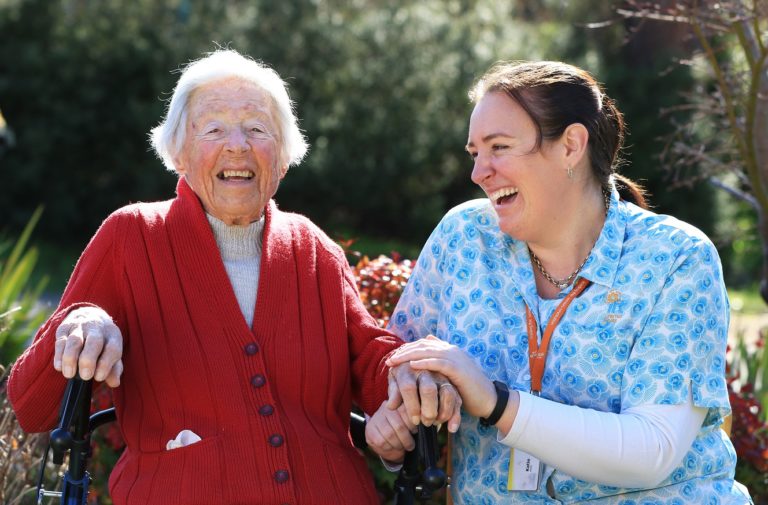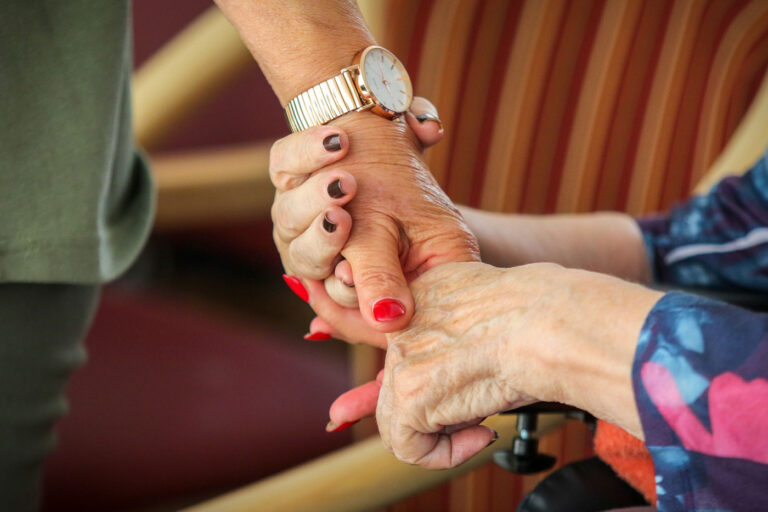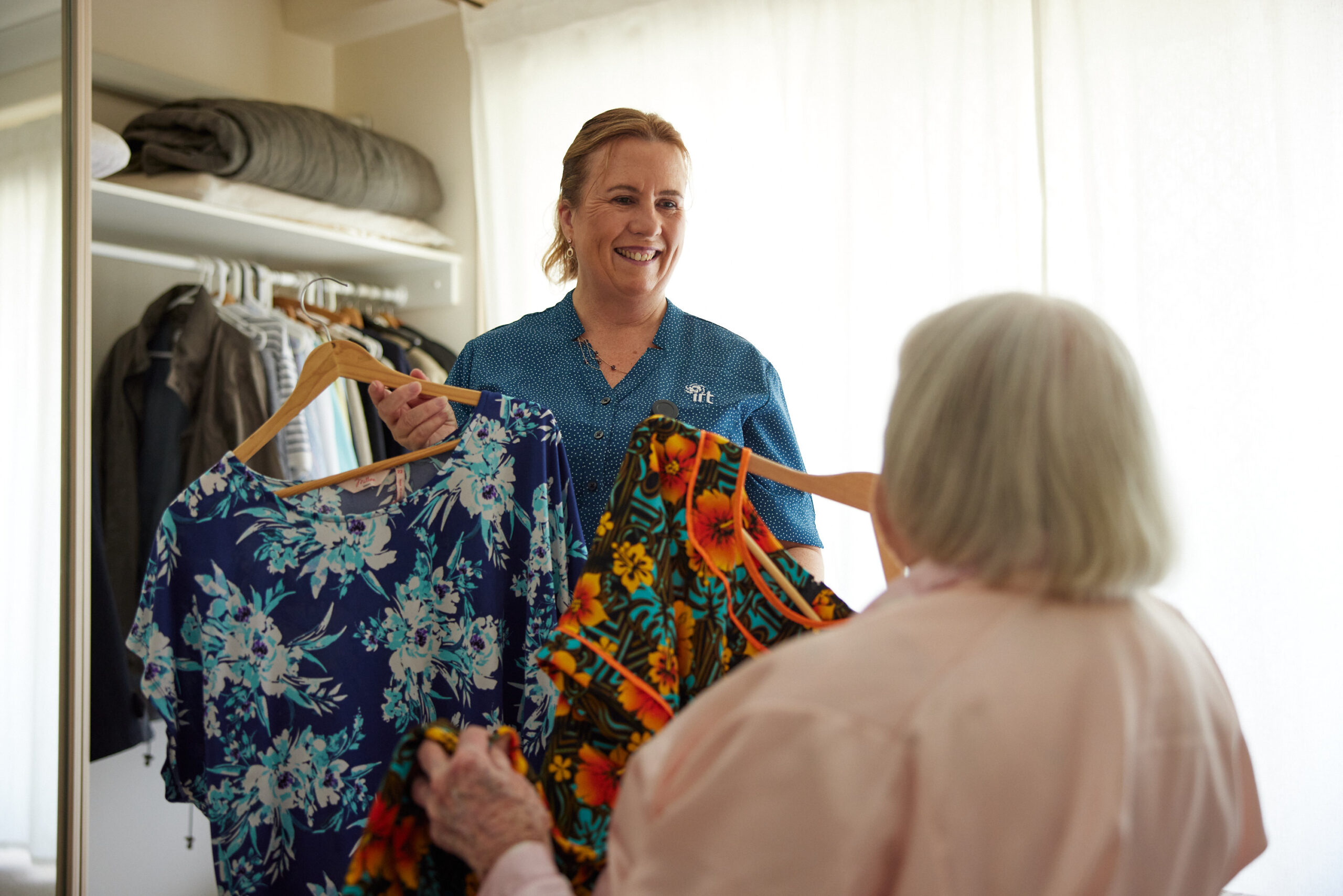What is the Charter of Aged Care Rights?
The Charter of Aged Care Rights is a single document that sets out the rights of people receiving aged care.

If you’ve searched the internet for answers to this question and wound up here, chances are you’re wanting to know how the Charter applies to your own circumstances as a recipient of aged care, or someone you know or care for.
The Charter underpins the Aged Care Quality Standards and came into effect in 2019. It covers 14 important rights for you or your loved one, including safe and quality care, independence, information, personal privacy, control, fairness and choice.
It helps create a shared understanding about the rights of people receiving Commonwealth-subsidised care. Having this shared understanding between those receiving care, their family, friends, carers; as well as aged care providers and their staff, aims to help everyone work together to achieve safe and high quality aged care.
By law, aged care providers must give the person receiving care, or their nominated representative, a ‘reasonable opportunity’ to read, understand and sign the charter. This process is designed to ensure acknowledgement and understanding of the Charter. If you or your loved one chooses not to sign the Charter, your rights are still protected and you will still receive the same standard of care and services as someone who has signed the document.
Here are the 14 rights explained – and what they mean for you or your loved one. They are written as statements which are assumed to be made by someone receiving aged care.


I have the right to:
1. Safe and high-quality care and services
What this means for you: You will be cared for by highly-qualified staff who adhere to best practice in the delivery of personal care, clinical care and services and supports for daily living.
2. Be treated with dignity and respect
What this means for you: Your individuality is recognised and respected, and aged care providers work with you to live your life the way you choose to.
3. Have my dignity, culture and diversity valued and supported
What this means for you: The care and services you receive are responsive, inclusive and sensitive to your individual cultural identity. All interactions with you, as well as the delivery of your care and services, reflects you as an individual.
4. Live without abuse and neglect
What this means for you: You have the right to live free of abuse and neglect, and the freedom to speak up and tell staff if you have any feedback or concerns.
5. Be informed about my care and services
What this means for you: Your individual needs are recognised and staff communicate with you in a way that is clear and easy to understand. Where you have authorised a nominated representative to act on your behalf, the aged care provider will also communicate with your representative to ensure they are informed about your care and services.
6. Access all information about myself, including information about my rights, care and services
What this means for you: You will be provided with access to your personal information in accordance with privacy legislation, as well as aged care providers’ own privacy policies. Sometimes you or your nominated representatives may be asked to put your request for information in writing.
7. Have control over and make choices about my care and personal and social life, including where the choices involve personal risk
What this means for you: Your right to make decisions that affect your life is respected, even where your choices may involve some level of personal risk. In these instances, aged care providers will have discussions with you and your nominated representatives to understand these risks and how they can be managed. Where your wish involves unacceptable risk, such as a wish that impacts the rights or safety of others, you will be supported in identifying alternative solutions.

8. Have control over, and make decisions about, the personal aspects of my daily life, financial affairs and possessions.
What this means for you: Your right to have control over your personal life, financial affairs and possessions is respected. You have the right to make decisions about your life and how you want to live. You are supported to choose your social networks and have regular contact and care evaluations by staff to ensure your needs and preferences are understood and met.
9. My independence
What this means for you: You are supported and provided assistance to help you maintain your optimal independence. You are also supported to maintain the level of control you want and are encouraged to exercise your rights under the Charter.
10. Be listened to and understood
What this means for you: Staff listen to you, understand your needs and preferences and encourage feedback about your care and services. You are provided with opportunities to have your voice heard and understood.
11. Have a person of my choice, including an aged care advocate, support me or speak on my behalf
What this means for you: Your right to have any person of your choice to speak on your behalf is respected. Your advocate is treated in the same way you would be treated, and your advocate is supported to be involved as little or as much as you would like.
12. Complain, free from reprisal, and have my complaints dealt with fairly and promptly
What this means for you: Your feedback is valued and you have a number of ways that you can submit feedback or a complaint. Your feedback or complaint is treated seriously and dealt with fairly and promptly.
13. Personal privacy and to have my personal information
What this means for you: Your personal privacy is respected and aged care providers comply at all times with privacy legislation.
14. Exercise my rights without it adversely affecting the way I am treated
What this means for you: Your individuality is promoted and respected. You will not be adversely affected in any circumstance where you exercise your rights.
If you have concerns about the aged care provided to you or someone you know you can:
- talk to the aged care provider, in the first instance,
- speak with an aged care advocate on 1800 700 600 or visit opan.com.au for support to raise your concerns, or
- contact the Aged Care Quality and Safety Commission on 1800 951 822 or visit agedcarequality.gov.au.

Does your loved one need support?
IRT has been supporting older Australians and their families with compassionate care for more than 50 years with aged care centres in NSW, Qld and the ACT. If your loved one needs warm and personalised care you can trust, we'd be more than happy to help.
Find out moreYou may also like
Creating an aged care resume with no experience
In this guide we will explain what an aged care resumé is, share tips on how to write a strong one and provide an aged…
Downsizing your home for retirement: where to begin
Have you been thinking about downsizing your home? We help you make sense of this life-changing decision that can reap so many benefits as you…


